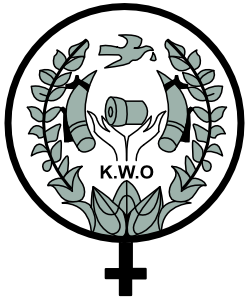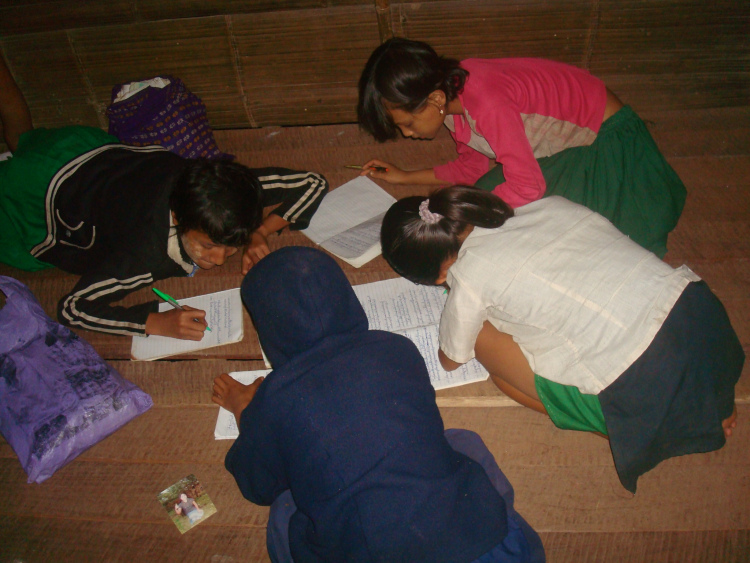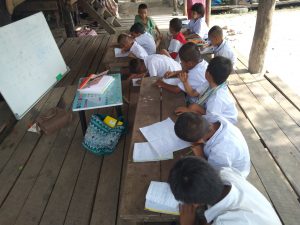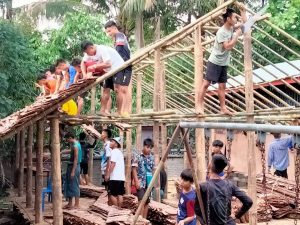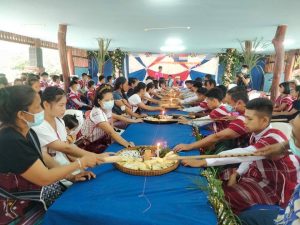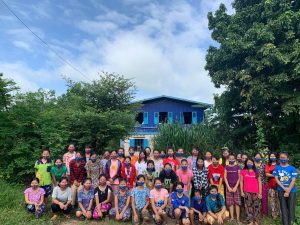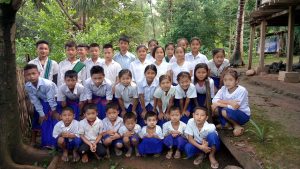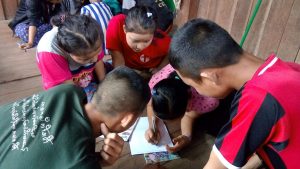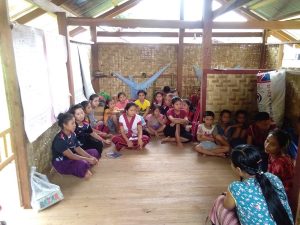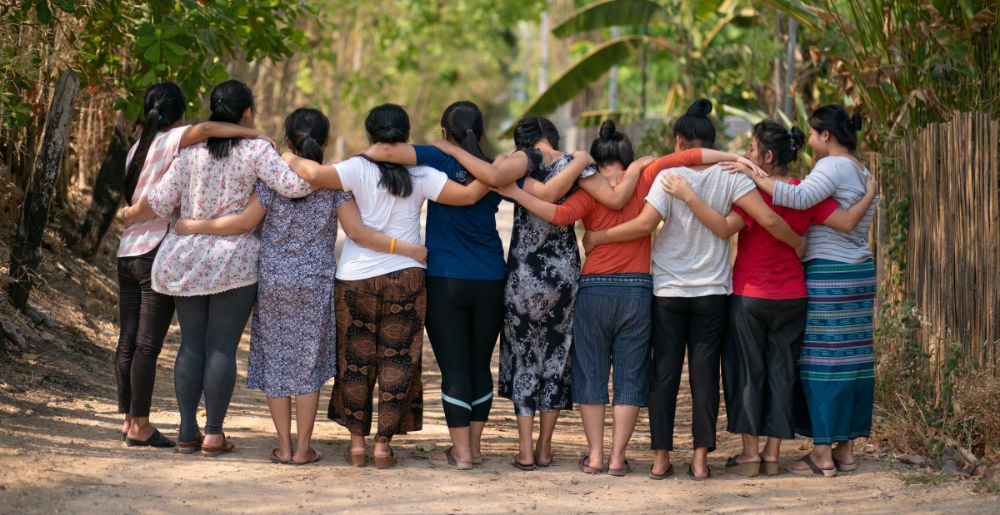All children have a basic Right to Education. Because of the many years of persecution and armed conflict with the Burma Army, there are not enough schools in the villages and towns of Burma. Many Karen village children do have access to a Primary School, but there is a lack of Secondary Schools. To continue their education children and youth often are forced to leave their homes and stay with distant family members or live in Student dormitories, which are close to one of the few High Schools in Karen State. As part of KWO’s Child Protection program, we look for opportunities to support children and respect their right to education. We especially focus on keeping girls in school as they are more likely to be chosen to stay at home, if parents are struggling with not enough income.
1. Project Goal
To support students, especially girls, with safe residential care in order to continue their education.
2. Location
We implement this project in 5 districts of Karen State: Du Tha Htu, Taw Oo, Mu Traw, Doo Pla Yar and Hpa-An District.
3. Overview
KWO implements this project in partnership with the Karen State Boarding House Working Group, which is based in Mae Tao Clinic (MTC). We currently support 12 Student Dormitories in Karen State. (They are not the same dormitories as the 3 Girls-Only Dormitories we support in our other project “Student Dormitories and Separated Children with EDM”.)
Currently about 1,400 students live in the 12 dormitories with a fairly equal gender balance. With this project we provide daily meals and essential care services for all residents of the dormitory. Minimum standards of comfort, sanitation and care are maintained in the dormitories under the supervision of two full-time carers per dormitory, a total of 28 individuals. The dormitory carer duties include: organizing daily meals, supervising studies, maintaining cleanliness standards in bathing/washing facilities, organizing work for the student groups, providing counseling for the children and youth. The students do a lot of work as well to keep their residence in safe condition, and to look after each other, and they are always supervised by the carers.
Through this project KWO is able to provide support to keep girls, and boys, in school. We cover most of the costs of schooling each child every year. Each community is also very involved in the well-being of Dormitory students and contribute a lot in terms of donating materials and labour and time.
KWO has developed a set of policies and guidelines on Child Protection and Child Safeguarding which all project staff, Dormitory caretakers, and KWO leaders and staff must follow and which ensure safe living conditions for children and youth separated from their families. Our main operational guidelines for student dormitories are presented in the KWO’s minimum standards for Student Dormitories titled “Not Less Than This”.
“Dormitory Committees” were established in each Dormitory site to ensure the safety of children and the support of the community. The 5 members of each Committee oversee the dormitory and co-ordinate with the Caretaker on a daily basis. They provide advice and support for practical needs like buildings etc and for the emotional support of the children.
4. Beneficiaries and Participants
In the 2023-24 academic year:
- 1,398 children and youth in Karen State were able to continue their schooling through support from this project. (813 girls and 585 boys).
- More than 1,000 students, community members, and Dormitory staff participated in Child Protection training.
5. Main Activities
The main activities we conduct are:
- Provide safe shelter in 12 Student Dormitories and maintain adequate living conditions in the 47 separate buildings of the 12 Dormitories. Each dormitory includes three separate main buildings for girl’s residence, boy’s residence, and kitchen/dining halls, plus separate bathing and laundry areas.
- Implement a daily care program for about 1,400 youth and children living in the dormitories, including meals, and supervised night study program.
- Provide monthly hygiene supplies, including sanitary pads for girls, and candles for night study to all dormitory students.
- Support 24 full-time dormitory carers with training, and monthly stipends to ensure they are able and available to supervise and provide care and practical assistance to all residents.
- Regular monitoring of Dormitories by field staff who also act as trainers. Monitoring also by KWO local leaders, and Dormitory Committee members.
- Provide refresher training every year based on the “KWO Dormitory Standards of Care” to all the students and carers, and Basic Health training for all the students.
- Conduct a two-day Child Protection Training for the field staff, who then provide training to all Dormitory carers and committee members.
- Conduct Kitchen Gardening training in collaboration with KESAN.
- Provide first aid kit and basic medicines for each dormitory for the prevention and basic treatment of minor injuries and disease. Only accessed by the carers.
- Conduct Multiplier Child Protection training for Carer, Committees, Parents and Teachers and students.
6. Who does the work?
There is one Project Co-ordinator based in KWO central office in town who manages the whole project, assisted by the KWO Executive Committee members. There are 5 field co-ordinators (one per district) plus 24 Dormitory Carers (two for each of the dormitories). KWO co-ordinates with Mae Tao Clinic staff, in Mae Sot, to develop and manage this project.
7. The Impact
The basic rights of children are more widely respected. The danger for these children of being forced to drop out of school was prevented. Children and youth at risk, were able to continue their schooling in safe and supportive conditions.
